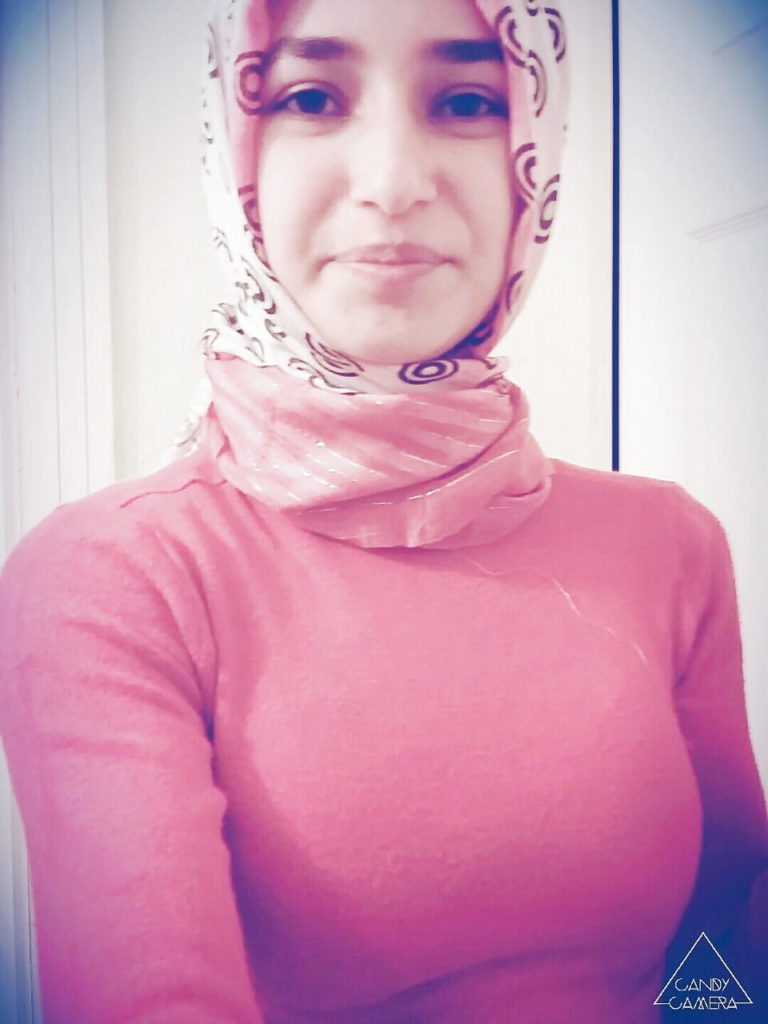Understanding Sotwe: Building Trust & Navigating The Digital Landscape
How can transparency and accountability be the cornerstones of trust in the digital age? In a world saturated with information, where digital footprints are permanent and the potential for misuse is ever-present, the unwavering commitment to transparent and accountable practices is paramount to building and maintaining trust.
The digital landscape is a complex and often murky realm. The ease with which information can be disseminated, the speed at which it can travel, and the anonymity afforded by the internet create both opportunities and challenges. While these factors can facilitate communication, collaboration, and access to information, they also pose significant risks. Misinformation, disinformation, and the unauthorized sharing of private data are just a few of the dangers that threaten to erode public trust. The concept of "Sotwe Turk Ifsha," a phrase that has gained traction in recent years, highlights the complexities involved in navigating this intricate online ecosystem. This phenomenon, encompassing the unauthorized sharing of private information, including intimate content, often involving celebrities or public figures, exemplifies the potential for harm when transparency and accountability are lacking. It underscores the need for a robust ethical framework and clear guidelines to safeguard individuals and preserve the integrity of the online environment. These practices, when implemented with integrity and adherence to ethical guidelines, foster public confidence and encourage greater engagement and understanding of the subject matter.
The term "Sotwe" itself has multiple interpretations. It can be seen as a valuable tool for exploring platforms like Twitter more efficiently, a means to connect with online communities, or a way to discover emerging trends. However, the context shifts when combined with "Turk Ifsha," indicating a focus on the unauthorized disclosure of private content. The availability of such content, as found on various platforms, presents a complex ethical dilemma. This includes the presence of "Turk gizli cekim benzersiz trk ifa videolaryla hazzn doruklarna kmak istiyorsan trk porno izle kategorimizi hemen incele," or "Turkish hidden camera unique Turkish leak videos, if you want to reach the peaks of pleasure, check out our Turkish porn category." Sites offering "Trk ifa sitesi veri taban," or "Turkish leak site database," along with links to "ifa telegram gruplar, turbobit ifa siteleri, trk ifa siteleri," or "leak telegram groups, turbobit leak sites, Turkish leak sites," create a landscape where privacy violations are potentially widespread. The promotion of such content and the existence of platforms such as "Trk ifa club," or "Turkish leak club," which bills itself as "cretsiz, yksek kaliteli yetikin trk ifa videolarnn ilk adresi," or "the first address of free, high-quality adult Turkish leak videos," further exemplifies the challenges.
| Understanding "Sotwe Turk Ifsha" | |
|---|---|
| Term | Sotwe Turk Ifsha |
| Definition | A controversial phenomenon involving the unauthorized sharing of private information, often of a sexual or intimate nature, online. The "Turk" component refers to Turkish content and/or individuals involved. |
| Context | Primarily exists within a digital environment where content sharing is facilitated by various platforms and groups. |
| Content Sources | Telegram groups, leak sites, and other platforms. |
| Ethical Concerns | Violation of privacy, potential for exploitation, and the spread of non-consensual content. |
| Impact | Can cause significant emotional distress, reputational damage, and legal consequences for those involved. |
| Legal Considerations | Vary by jurisdiction but generally relate to privacy laws, copyright, and the distribution of illicit materials. |
| Reference | Example Reference on Privacy Laws and Internet Ethics |
The proliferation of such content, as evident in phrases like "Tango asteria premium ifa videolar part 1 hd 01:00," or "Tango asteria premium leak videos part 1 hd 01:00," further underscores the nature of this issue. Furthermore, the discussions and debates surrounding "Sotwe Turk ifsha" are indicative of a multifaceted issue that touches upon questions of consent, privacy, ethics, and the law. The unauthorized sharing of personal information poses risks not only for the individuals whose data has been leaked but also for the broader societal understanding of digital rights, data protection, and online safety. The implications of such breaches extend beyond the digital realm, carrying significant real-world consequences for the individuals involved, as well as for the overall trustworthiness of online platforms and digital spaces.
The use of terms like "Sotwe," in the context of Twitter, often is presented as a means to enhance one's engagement with digital trends, enabling users to stay connected to the pulse of online communities, discover innovative ideas, and understand the broader landscape of digital trends. In stark contrast to this, the usage of Sotwe Turk Ifsha presents a conflicting picture. The contrast highlights the complex nature of the online world, where tools intended for positive use can be and are often used for harmful purposes. The availability of content, which can be found across different platforms, from Telegram groups to dedicated leak sites, only serves to amplify the potential impact of these concerns and reinforces the importance of robust regulations, ethical guidelines, and proactive responses. The convergence of these elements creates a situation where the boundaries between freedom of expression and the responsibility to safeguard individual privacy becomes dangerously blurred.
The ethical dimensions of "Sotwe Turk ifsha" are far-reaching. Consent is the bedrock of ethical interactions and the lack of it is at the core of this issue. When private information is shared without consent, it constitutes a violation of fundamental rights and is a source of potential emotional, psychological, and reputational harm to those whose privacy has been violated. The dissemination of these leaks can have grave consequences, including the erosion of trust, the instigation of cyberbullying and harassment, and the perpetuation of a culture of online shaming. Therefore, it is crucial to address the issue from ethical, legal, and social perspectives to minimize the harm caused by the unauthorized sharing of private content.
The "Sotwe" phenomenon can be associated with multiple facets of the digital sphere. It highlights the ease with which personal information can be spread without consent, whether it's in the context of exploring Twitter's trends or the illicit sharing of private content. The use of phrases like "Hibir yerde bulamayacanz ifalarn linkleri burda," or "Links of leaks you can't find anywhere," demonstrates the availability of such material and underscores the necessity for a robust framework that addresses the ethical and legal dimensions of digital content dissemination. Moreover, the discussion and debate around "Sotwe Turk ifsha" touch upon critical matters of privacy, digital rights, and online safety. Therefore, it's essential to approach the issue from various perspectives in order to mitigate the potential harms caused by unauthorized sharing of private content. The convergence of these elements challenges the lines that separate freedom of expression from the responsibility of safeguarding individual privacy.
The discussion of "Sotwe Turk ifsha" raises significant questions about digital rights, privacy, and ethical conduct in the age of the internet. The potential for misuse of technology is vast, and the unauthorized sharing of private information can have profound and lasting implications. Understanding the various facets of the issue, including the ethical dimensions, the legal considerations, and the societal impact, is vital for building a safer and more responsible digital environment. Platforms, individuals, and authorities alike have a shared duty to implement and enforce protective measures, ethical guidelines, and legal frameworks to safeguard privacy, promote digital literacy, and cultivate a culture of respect and responsibility online.
The debate surrounding "Sotwe Turk ifsha" also draws attention to the role of various platforms and digital communities. The ability to easily share content is a significant driver, which includes the sharing of intimate materials, across different social media channels and file-sharing sites, makes the problem even more widespread. It's essential for these platforms to implement measures such as robust content moderation systems, tools for reporting abuse, and clear policies against the dissemination of non-consensual intimate content. Moreover, the user base has to be educated about privacy, data security, and responsible online conduct. A coordinated effort from all stakeholders is essential to address this complex problem and ensure the online environment is safer.
The various platforms and digital communities play a vital role in the circulation of content associated with the Sotwe Turk Ifsha topic. The effortless sharing of information, including intimate materials, across various social media channels and file-sharing sites exacerbates this. It is therefore essential for platforms to embrace strong content moderation systems, abuse reporting tools, and transparent policies against the dissemination of non-consensual intimate content. Simultaneously, users require education regarding privacy settings, data security, and responsible conduct online. A collaborative approach from all parties involved is crucial to effectively address this multifaceted issue and promote a safer online environment for everyone.
It is important to address the broader implications of "Sotwe Turk ifsha" which affect the societal perceptions of privacy, consent, and digital boundaries. The prevalence of unauthorized sharing of private content can result in the normalization of privacy violations and could result in a culture of cyber-harassment and exploitation. The promotion of such behavior also underscores the significance of promoting digital literacy. This can enable people to navigate the digital realm safely. The collective responsibility lies on the shoulders of parents, educators, and influencers to teach the principles of ethical conduct, respect for boundaries, and awareness of the potential risks related to online activities. Developing these values are extremely important to address the challenges associated with "Sotwe Turk ifsha" and build a better digital environment.
The term Sotwe Turk Ifsha should remind us of the necessity to balance technological advancement with the fundamental values of human dignity and respect. It requires a comprehensive approach, encompassing robust regulatory frameworks, education, technological solutions, and a collective commitment to ethical practices. Furthermore, by promoting a culture of responsibility, prioritizing respect, and addressing the root causes of this issue, the society can endeavor to mitigate the harms caused by the unauthorized sharing of private information and ensure the digital landscape is one that fosters safety, trust, and empowerment for all.
The discussion around "Sotwe Turk ifsha" highlights the multifaceted nature of the digital landscape. It underscores the need for vigilance, collaboration, and a commitment to ethical conduct in the face of rapid technological advancements. By addressing the challenges posed by the unauthorized sharing of private content, the society can work towards building a more responsible and trustworthy digital environment that protects privacy, fosters respect, and empowers all users.


